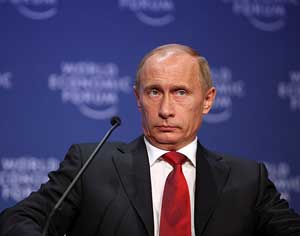Could Iceland soon be to journalists what the Cayman Islands is to wealthy magnates? Supporters of the groundbreaking Icelandic Modern Media Initiative introduced a proposal today to establish the European island nation as the world’s first “offshore publishing center.” The proposal is based on the business model of offshore financial centers like Switzerland, which attracts foreign depositors with an enticing combination of low taxes and strict bank secrecy laws. The IMMI aims to do the same for investigative journalists by compelling Icelandic legislators to pass the strongest combination of source protection and freedom of speech laws in the world.
The IMMI was drafted with help from Julian Assange and Daniel Schmitt, two of the founders of Wikileaks, an otherwise anonymous whistleblower website dedicated to publishing leaks of sensitive governmental, corporate, organizational, or religious documents. Wikileaks, which is currently offline due to fundraising difficulties, has already experimented with ways of breaking stories on a particular country by publishing outside their legal jurisdiction. Last May, when the UK’s strict libel laws prevented the BBC from posting documents detailing the dumping of 400 tonnes of toxic waste in the Ivory Coast, the papers appeared on Wikileaks days later. At the end of the summer, an Icelandic broadcaster listed the URL for Wikileaks on TV to circumvent a ruling blocking it from revealing a list of the country’s creditors.
Johnathan Stray of the Neiman Journalism Lab asks, “Could global news organizations with a home office in Reykjavík soon be as common as Delaware corporations or Cayman Islands assets?” In the wake of an economic collapse that some legislators feel was brought on by a lack of transparency, the Guardian reports that the proposal “has widespread backing” among Iceland’s 51 members of parliament. “The main purpose is to prevent something like our financial crisis from taking place again,” MP Lilja Mósesdóttir told Stray, noting the country’s financiers had great influence over the Icelandic media. “They were manipulating the news.”
Most news about IMMI has focused on the increased accountability that could result from passage of the groundbreaking proposal. But serious questions remain about the viability of the proposal. For instance, every country has libel laws for a reason. How will the IMMI ensure that it becomes a hub for investigative journalists and not the tabloid capital of the world? And if Icelandic MPs intend to remedy the country’s financial woes via journalism, they are likely to be sorely disappointed. As Gawker notes, “if you’re trying to pull in money from investigative journalists, Iceland, that’s strike two for you.”












